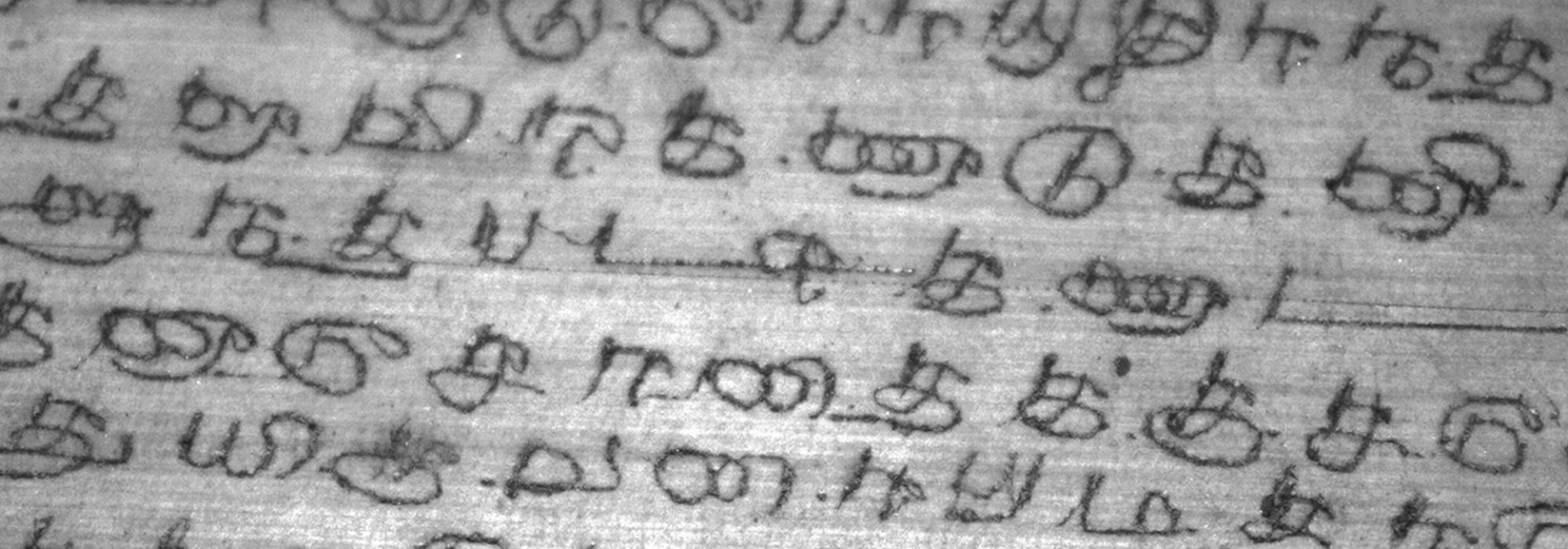Subhashitas (su = good, bhashita = spoken) are self-contained verses that are witty, romantic, wise, puzzling, devotional, sarcastic, or didactic. While many of the subhashitas are standalone compositions by various poets, some of them are extracts from major works of poetry or drama (like Raghuvamsham). Many languages have such standalone verses that deal with a specific topic and set to a poetic meter (of varying lengths; couplets, tercets, quatrains, etc.) For example, the Tamil venpa, the Japanese haiku and tanka, the Persian rubai, the Kannada tripadi and chatushpadi, the Urdu nazm, the Marathi ovi, the Hindi doha, and the English limerick. Often they are exclusively devotional or instructional or comical or amorous, but the Sanskrit subhashitas cover a broad range of subjects and themes.
Often we don’t know the composer of the subhashita because unlike some other forms of Indian poetry, the name (or signature word) of the poet does not appear in these verses. But we have a record of some traditional works of subhashitas that bring together the works of several poets. For instance, the Subhashitavali is a compilation of more than 3,000 subhashitas written by over 350 poets, compiled by the Kashmiri poet Vallabhadeva.
Let’s look at a few subhashitas across themes. A good place to start is with a subhashita about subhashitas:
पृथिव्यां त्रीणि रत्नानि
जलमन्नं सुभाषितम् |
मूढैः पाषाणखण्डेषु
रत्नसंज्ञा प्रदीयते ||Three jewels adorn the earth:
water, food, and good words
Fools regard stones and diamonds
as precious jewels
Here is a word of caution to the people of the world:
अग्निशेषं ऋणशेषं
शत्रुशेषं तथैव च |
पुनः पुनः प्रवर्धेत
तस्मात् शेषं न कारयेत् ||Leave unattended a fire or a debt
or an enemy even for a bit –
again and again, they will rise!
Always destroy them completely
A famous comic verse, making mock of doctors:
वैद्यराज नमस्तुभ्यं
यमराजसहोदर |
यमस्तु हरति प्राणान्
वैद्यो प्राणान् धनानि च ||O doctor, I salute you,
O accomplice of Death!
Death steals only life
You steal life and money!
Here is a subtle one for the romantics:
एकवस्तुं द्विधा कर्तुं
बहवः सन्ति धन्विनः |
धन्वी स मार एवैको
द्वयोरैक्यः करोति यः ||To cut one thing into two –
this many archers can do
But only Cupid, the bowman
makes two into one
Here’s one for the parents who are rearing a child:
लालयेत् पञ्चवर्षाणि
दशवर्शाणि ताडयेत् |
प्राप्ते तु षोडशे वर्षे
पुत्रं मित्रवदाचरेत् ||Pamper them for the first five years
Keep them in check for the next ten
When they turn sixteen,
treat your children as friends
Here’s great material for a motivational poster:
सुवर्णपुष्पां पृथिवीं
चिन्वन्ति पुरूषास्त्रयः |
शूरश्च कृतविद्यश्च
यश्च जानाति सेवितुम् ||The golden flower of earth
is obtained by three kinds of people:
the courageous, the wise,
and those who know how to serve
And here’s the prefect one for a de-motivational poster:
बुधाग्रे न गुणान् ब्रूयात्
साधु वेत्ति यतः स्वयम् |
मूर्खाग्रेऽपि च न ब्रूयाद्
बुधप्रोक्तं न वेत्ति सः ||Speak not about your greatness to the intelligent –
the wise will find out by themselves
Speak not about your greatness to the ignorant –
the fools will never understand
A verse with a twist in the end:
न चोरहार्यं न च राजहार्यं
न भ्रातृभाज्यं न च भारकारि |
व्ययं कृते वर्धत एव नित्यं
विद्याधनं सर्वधनप्रधानम् ||Thieves cannot steal it, kings cannot usurp it
It can’t be divided among brothers, it isn’t heavy either
The more your spend it, the more it will grow, all the time
The wealth of knowledge is indeed the greatest of them all!
(Note: This verse is composed in the trishtup poetic meter, which has four lines and eleven syllables per line.)
This verse closely resembles a Zen koan:
क्षमा शस्त्रं करे यस्य
दुर्जनः किं करिष्यति |
अतृणे पतितो वह्निः
स्वयमेवोपशाम्यति ||One who holds the weapon of forgiveness in his hand –
how will the wicked ever face such a person?
A fire that falls on a grassless patch of land
gets extinguished all by itself
And we have a riddle to conclude the list of ten:
केशवं पतितं दृष्ट्वा
पाण्डवा हर्षनिर्भराः |
रुदन्ति कौरवाः सर्वे
हा हा केशव केशव ||Seeing the fall of Krishna,
the Pandavas jumped with joy
All the Kauravas cried aloud,
“Oh! Oh! Krishna! Krishna!”
Clearly, there is something amiss here. The Pandavas are such dear friends and admirers of Krishna that they would obviously not rejoice in his fall. The Kauravas so hate Krishna that they would surely not wail at his collapse. The real meaning of this kind of trick verse is often understood by splitting the words in a way that is not readily evident. The word केशवम् (Keshava is another name for Krishna; Keshava means “the lord of creation, sustenance, and dissolution”) can be split into के शवम् (के = in the water; शवम् = corpse). The word पाण्डवाः (Pandavas are sons of King Pandu) can be split into पा अण्डवाः (पा = water; अण्डवाः = born from eggs). The word कौरवाः (Kauravas are descendents of King Kuru) can be split into कौ रवाः (कौ = who; रवाः = noise, howl). Now, with all the word-splits, we get the revised meaning:
Seeing a corpse fall into the water,
the fish jumped with joy
All the howlers cried aloud,
“Oh! Oh! A corpse in the water! A corpse in the water!”
(Here, “born from eggs” refers to fish while “one who howls” could refer to the wolves or other wild animals who can’t access the meat; or it could refer to the crows cawing loudly).
This article was first published in Daily O as part of my column Commonsense Karma.










































